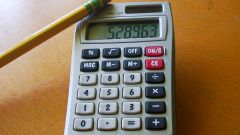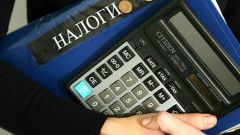The STS was specifically designed for small businesses. The prevalence of simplified taxation of entrepreneurs is due to the lower tax burden, and very simple accounting and tax accounting. USN SP is no different for the same regime for companies (OOO, ZAO), only entrepreneurs are not obliged to maintain accounting records. You only need to fill in KUDER and cashbook.
In order to begin to apply the simplified tax system, the entrepreneur, when registering you must submit a notification to the registering authority. Otherwise, by default all PIS are required to apply FOOTING. Latest tax regime is extremely burdensome for entrepreneurs. Their use is justified only if the majority of SP clients are representatives of large business who need to invoice VAT. In other cases, especially for a new business seems to be optimal use of the USN.
For an existing business to transition to USN next year must apply before the end of this.
Before proceeding to the application of USN, SP needs to determine the object of taxation (this is based on what will pay the tax). The entrepreneur has two options - to pay 6% of income (revenue) or 15% difference between revenues and expenditures. If the rate of 6% is the same for all areas of the country, then USN "income-spending" many regions will benefit from a lower rate for certain categories of payers. For example, working in construction or consumer services.
How to make the right choice? You should try to predict the structure of revenues. If the expenditure it is more than 70%, the more advantageous is the use of the simplified tax system "incomes-expenses". It is worth considering that the list of expenses is strictly limited in the Tax code, i.e. to deduct from revenue you are not spending entrepreneur. Moreover, all costs must be not only economically viable, but also documented.
If the PI has no employees, and the cost is negligible (this is especially true for entrepreneurs working in the service sector, by far the more advantageous the use of the USN "income". In some cases, the entrepreneur will be able to not pay a single tax. After all, the amount of tax for sole proprietors without employees can be reduced by 100% paid to the pension Fund fixed contributions. And their payment is required regardless of the financial result.
How to switch to simplified taxation
In order to begin to apply the simplified tax system, the entrepreneur, when registering you must submit a notification to the registering authority. Otherwise, by default all PIS are required to apply FOOTING. Latest tax regime is extremely burdensome for entrepreneurs. Their use is justified only if the majority of SP clients are representatives of large business who need to invoice VAT. In other cases, especially for a new business seems to be optimal use of the USN.
For an existing business to transition to USN next year must apply before the end of this.
The types of USN SP
Before proceeding to the application of USN, SP needs to determine the object of taxation (this is based on what will pay the tax). The entrepreneur has two options - to pay 6% of income (revenue) or 15% difference between revenues and expenditures. If the rate of 6% is the same for all areas of the country, then USN "income-spending" many regions will benefit from a lower rate for certain categories of payers. For example, working in construction or consumer services.
How to make the right choice? You should try to predict the structure of revenues. If the expenditure it is more than 70%, the more advantageous is the use of the simplified tax system "incomes-expenses". It is worth considering that the list of expenses is strictly limited in the Tax code, i.e. to deduct from revenue you are not spending entrepreneur. Moreover, all costs must be not only economically viable, but also documented.
If the PI has no employees, and the cost is negligible (this is especially true for entrepreneurs working in the service sector, by far the more advantageous the use of the USN "income". In some cases, the entrepreneur will be able to not pay a single tax. After all, the amount of tax for sole proprietors without employees can be reduced by 100% paid to the pension Fund fixed contributions. And their payment is required regardless of the financial result.




